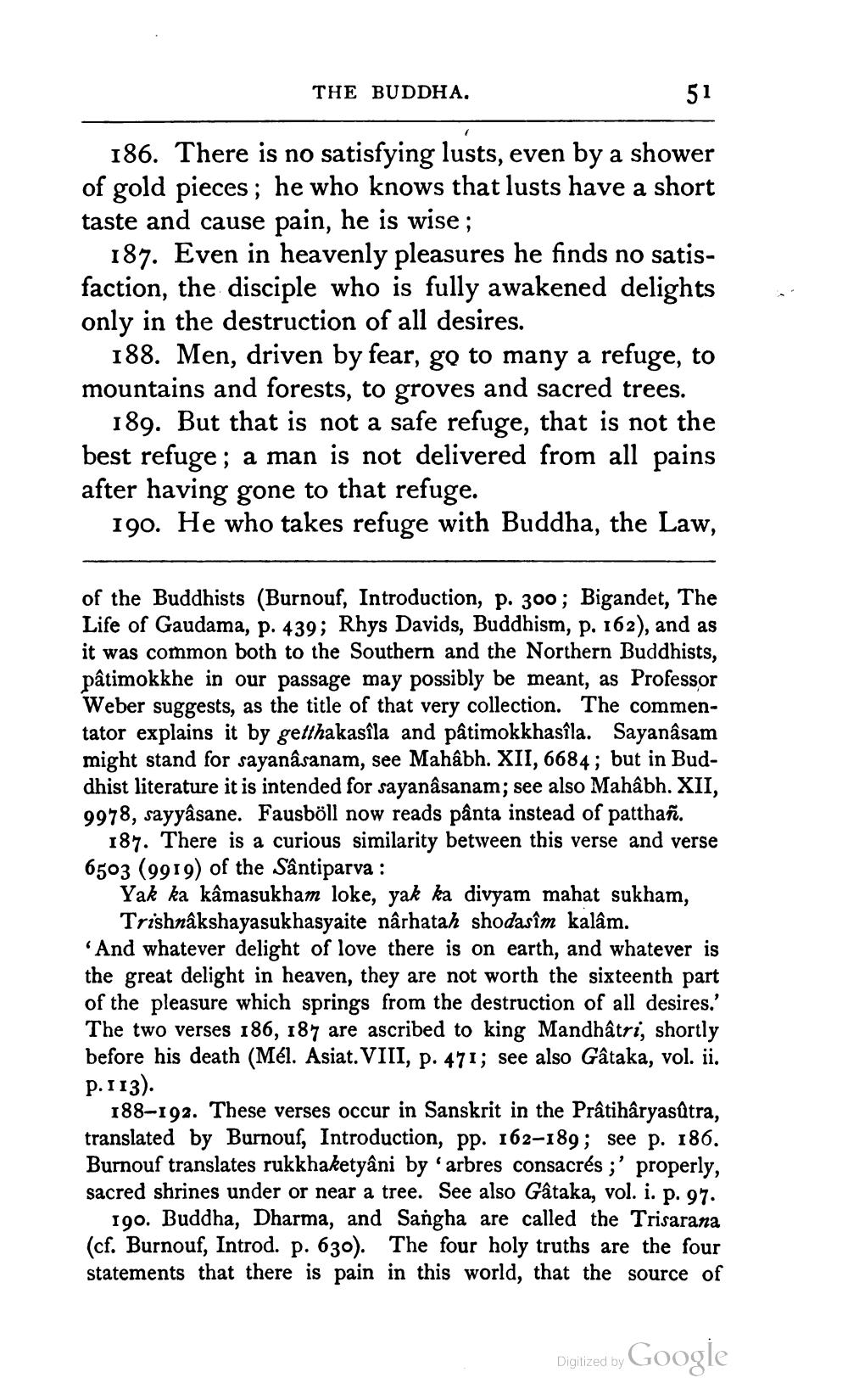________________
THE BUDDHA.
51
186. There is no satisfying lusts, even by a shower of gold pieces; he who knows that lusts have a short taste and cause pain, he is wise ;
187. Even in heavenly pleasures he finds no satisfaction, the disciple who is fully awakened delights only in the destruction of all desires.
188. Men, driven by fear, go to many a refuge, to mountains and forests, to groves and sacred trees.
189. But that is not a safe refuge, that is not the best refuge; a man is not delivered from all pains after having gone to that refuge.
190. He who takes refuge with Buddha, the Law,
of the Buddhists (Burnouf, Introduction, p. 300; Bigandet, The Life of Gaudama, p. 439; Rhys Davids, Buddhism, p. 162), and as it was common both to the Southern and the Northern Buddhists, pâtimokkhe in our passage may possibly be meant, as Professor Weber suggests, as the title of that very collection. The commentator explains it by getthakasîla and pâtimokkhasîla. Sayanâsam might stand for sayanâsanam, see Mahâbh. XII, 6684; but in Buddhist literature it is intended for sayanâsanam; see also Mahâbh. XII, 9978, sayyâsane. Fausböll now reads pânta instead of patthan.
187. There is a curious similarity between this verse and verse 6503 (9919) of the Sântiparva :
Yak ka kâmasukham loke, yak ka divyam mahat sukham,
Trishnâkshayasukhasyaite närhatah shodasîm kalâm. And whatever delight of love there is on earth, and whatever is the great delight in heaven, they are not worth the sixteenth part of the pleasure which springs from the destruction of all desires.' The two verses 186, 187 are ascribed to king Mandhâtri, shortly before his death (Mél. Asiat. VIII, p. 471; see also Gâtaka, vol. ii. p. 113).
188-192. These verses occur in Sanskrit in the Prâtiharyasůtra, translated by Burnouf, Introduction, pp. 162-189; see p. 186. Burnouf translates rukkhaketyâni by 'arbres consacrés ;' properly, sacred shrines under or near a tree. See also Gâtaka, vol. i. p. 97.
190. Buddha, Dharma, and Sangha are called the Trisarana (cf. Burnouf, Introd. p. 630). The four holy truths are the four statements that there is pain in this world, that the source of
Digitized by Google




